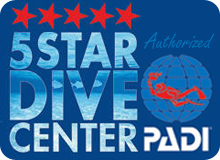PADI RESCUE DIVER CERTIFICATION


Become a PADI Rescue Diver in Florida
With Lauderdale Diver
“Challenging” and “rewarding” best describe the PADI Rescue Diver course. Building upon what you’ve already learned, this course expands on what you already know about how to prevent problems, and how to manage them if they occur.
Most divers find this course both demanding and rewarding, and at the end, say it’s the best course they’ve ever taken. What you will learn:
- Self Rescue.
- Recognizing and managing stress in other divers.
- Emergency management and equipment.
- Rescuing panicked divers.
- Rescuing unresponsive divers.
Before enrolling in the PADI Rescue Diver Course you will be required to complete a medical waiver. If you have any pre-existing medical conditions which may be affected by diving you will have to get a physicians clearance prior to participating in scuba activities.
Our PADI Rescue Diver Course Overview
This is a continuing education course, students must be advanced certified and have a current emergency first response certification. They are expected to have their own dive equipment, we do offer a package rental deal for the course if they do have their own equipment.
Students are required to prepare for the course by completing the eLearning portions or viewing a DVD and completing knowledge reviews prior to three hours of class room. Then attend an open water site for in water rescue module training usually the same day.
On a different day students are taken on an ocean boat trip where they undertake two rescue scenarios.
Students are then trained to be a more aware diver and have the foundation skills to handle an emergency situation. This is when students decide if they want to take the master scuba diver route or the divemaster route to further their training.
Here is some additional safety equipment that you should always carry while diving.
- An audible emergency surface signal such as a whistle, air-horn, shaker etc.
- A visible emergency surface signal such as an SMB (surface marker buoy), flare, dive flag, float, or reflective light.
- A dive tool, knife, or cutter. This helps in case of entanglement from fish wires, ropes, etc.
- An underwater slate and pencil so you can write notes
- A torch that can be used in low visibility, in the dark, underwater, or on the surface.
- A pocket mask for rescue breaths to be used on the surface

